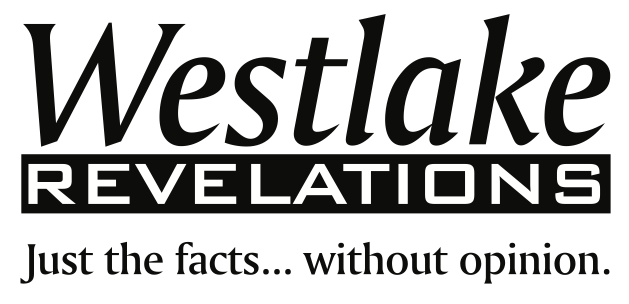Synopsis
Recently, there have been rumors of USPS branch closures. At this time, locally, only the Conejo Valley Station, located at 235-A N Moorpark Road is slated to close, and the operations would consolidate into Thousand Oaks Post Office, 3435 Thousand Oaks Blvd. The date for the move has not yet been determined.
That is the only location at this time. And, as the USPS is always fond of saying “the process of evaluating facilities for consolidation or discontinuance is on on-going process.”
In recent years, the USPS has lost over $15 billion. USPS Spokesperson Richard Maher says “Most of our financial troubles can be traced to legislation passed in 2006, that among other constraints, requires USPS to prepay future retiree health benefits to the tune of over $5 billion annually regardless of business conditions. No other government agency or business has this mandate. USPS has asked Congress for legislative action to return USPS to financial viability as we approach a cash shortfall later this year.” For those interested, below is the USPS press release on this issue (in their words, not the words of Westlake Revelations).
Press Release from USPS
Postal Service Asks Congress for Action
‘Need for legislative change is immediate’
LOS ANGELES CA ? The U.S. Postal Service (USPS) has asked members of Congress ? including Senator Dianne Feinstein, a Member of the Senate appropriations committee, Congressman Xavier Becerra, a Member of House leadership, and Congressman Adam Schiff and Congresswoman Lucille Roybal-Allard, Members of the House appropriations committee ? to enact legislation to return the organization to financial stability.
In a letter signed jointly by Board of Governors Chairman Louis Giuliano and Postmaster General Patrick Donahoe, USPS urged Feinstein, Becerra, Schiff and Roybal-Allard to support action to:
* Eliminate current mandates requiring $5.5 billion annual retiree health benefit pre-payments;
* Allow the Postal Service to access Civil Service Retirement System and Federal Employee Retiree System (FERS) surpluses; and
* Give the Postal Service the authority to determine the frequency of mail delivery.
USPS is in “a dire financial predicament” according to Giuliano and Donahoe, despite ongoing aggressive cost-reduction initiatives. Over the last four fiscal years, the Postal Service has reduced its size by 110,000 career positions and saved $12 billion in costs.
Absent legislation this fiscal year, Giuliano and Donahoe said making the mandated $5.5 billion pre-payment due Sept. 30 will not be possible. “This pre-payment for future retiree health benefits is no longer tenable given present-day financial challenges,” they said.
Federal retirement law also has resulted in a $6.9 billion surplus for Postal Service contributions into the Federal Employees Retirement System (FERS). The letter calls for these funds to be restored to the Postal Service to help avoid insolvency. The Postal Service informed the Office of Personnel Management (OPM) that it is suspending employer contributions for the defined benefit portion of FERS annuities effective June 24.
The Postal Service will continue to transmit employees’ FERS contributions to OPM, as well as employer automatic and matching contributions and employee contributions to the Thrift Savings Plan, and employees will continue to receive service credit. The annuity payment suspension is an emergency cash conservation measure expected to free about $800 million in the current fiscal year.
The letter states a cash shortfall is projected to occur as early as October: “The Postal Service is facing the real prospect that it will not be able to meet payroll next (fiscal) year, thus disrupting mail delivery.”
The Postal Service has been communicating regularly with Feinstein, Becerra, Schiff, Roybal-Allard and others in Congress and the Administration about its serious financial position, expressing support for provisions of two separate pieces of legislation introduced by Sen. Tom Carper (D-DE) and by Sen. Susan Collins (R-ME), respectively.
“The need for legislative change is immediate,” Giuliano and Donahoe said. “We urge your support of this vital postal legislation and ask that you work for immediate enactment this fiscal year to avoid the possibility of mail and package delivery disruptions.”
The Postal Service receives no tax dollars for operating expenses, and relies on the sale of postage, products and services to fund its operations.
We’re everywhere so you can be anywhere: www.uspseverywhere.com
A self-supporting government enterprise, the U.S. Postal Service is the only delivery service that reaches every address in the nation, 150 million residences, businesses and Post Office Boxes. The Postal Service receives no tax dollars for operating expenses, and relies on the sale of postage, products and services to fund its operations. With 32,000 retail locations and the most frequently visited website in the federal government, usps.com, the Postal Service has annual revenue of more than $67 billion and delivers nearly 40 percent of the world’s mail. If it were a private sector company, the U.S. Postal Service would rank 29th in the 2010 Fortune 500. Black Enterprise and Hispanic Business magazines ranked the Postal Service as a leader in workforce diversity. The Postal Service has been named the Most Trusted Government Agency six consecutive years and the sixth Most Trusted Business in the nation by the Ponemon Institute.


